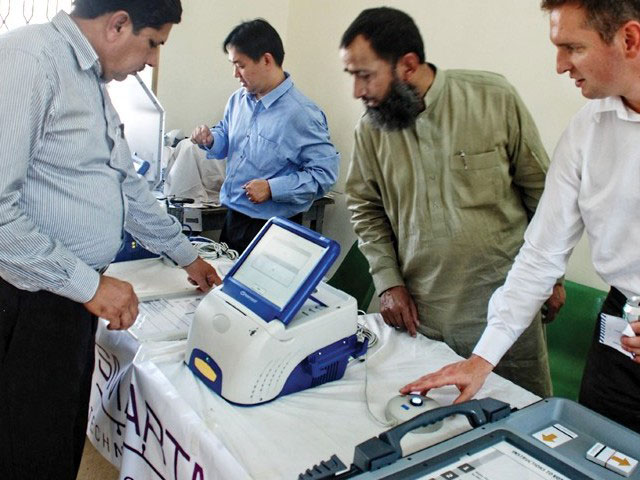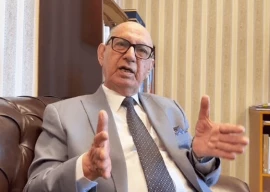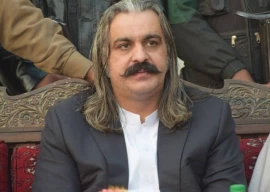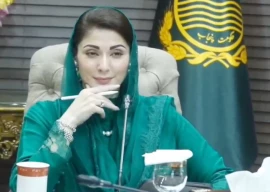
Having proposed the adoption of electronic voting machines in its second-five year reforms program for transparency in voting, officials of the poll body on Wednesday told a parliamentary committee that there were various “technical issues” that would bar the electoral body from introducing EVMs in next general elections.
Many countries, including neighbouring India have been successfully using EVMs for decades. Earlier the officials of the ECP had blamed lack of legislation as impediment in implementing the proposal as it would require the law to be amended to make the voting process constitutional. The ECP had announced that it would go for voting through electronic machines in next general elections due in 2018.
However, at a time when the proposal was about to be realised, it was the ECP who backed out.
During the meeting of a sub-panel of the parliamentary committee on electoral reforms, which is finalising the legislative framework to reform the electoral system, representatives of ECP cited various reasons urging the committee to drop the proposal from list of reforms.
“There are issues of specifications….. the technology is not fool proof. There are issues of manufacturing of these machines on such a large scale and storing them. We have issues of voters’ education,” one of the officials who attended the meeting told The Express Tribune.
He was hesitant to share further details.
Earlier this year, the ECP had resisted the demand from some political parties to introduce biometric machines to verify the identity of voters during the local government elections in Khyber-Pakhtunkhwa. The LG elections in the province are due to be held on May 30 and these will be held through traditional manual method.
“I think most of the proposals in our on going second five year plan died after retirement of last secretary as most of these plans were his brainchild,” one of the officials remarked.
Zahid Hamid, the head of the parliamentary panel, told reporters that the ECP has sought time till December to come up with some comprehensive study on EVMs. He said ECP has been showing reluctance in moving to electronic voting and its officials have mentioned various technical issues in EVMs. The committee will call the technical experts for a direct briefing before making a final decision, he added.
“If EVMs are not feasible, we will improve the existing manual system to ensure transparency” said Hamid in resignation.
The ECP has since 2011-12 reviewed various electronic vote machines produced by local and international companies.
While resisting the idea of using biometric machines for voter’s identification in K-P local government polls, the ECP had claimed that these machines would be useless after one elections as the commission would be introducing EVMs which have inbuilt biometric system.
Resists granting overseas Pakistanis right to vote
Along with the introduction of EVM’s, the proposal of giving Pakistanis living overseas the right to vote also appears to be pushed on to the back burner.
Briefing the committee on difficulties of giving remittance-sending, Pakistani citizenship holding expats their basic right to vote, the ECP officials said in many countries of the Middle East, where a large number of Pakistanis are concentrated, voting is not allowed under domestic laws. Sanctity of sovereign Pakistani ground in consulates and embassies notwithstanding.
However committee members observed that all the parties want to inculcate legal provisions to allow overseas Pakistan right to vote once legal and technical issues are addressed.
Deputy Speaker apologises for violation of code of conduct
Deputy speaker National Assembly Mutraza Javed Abbasi on Wednesday submitted a written apology to the ECP over alleged violation of election code of conduct.
ECP had summoned Abbasi after receiving complaints that he was running campaigns of PML-N candidates for May 30 local government elections in K-P.
Abbasi, in his written affidavit, apologised for his conduct and promised to follow ECP’s rules. However, a complainant from Abbasi’s native town Abbottabad insisted that deputy speaker was continuing to flout the rules.
“Abbasi was served notices on May 16. He continued campaigning even after that,” Fazal Haji complained.
The ECP said it will not close the case and asked the complainant to provide proofs to substantiate his claim.



1731916090-0/sabrina-(3)1731916090-0-165x106.webp)













COMMENTS (7)
Comments are moderated and generally will be posted if they are on-topic and not abusive.
For more information, please see our Comments FAQ